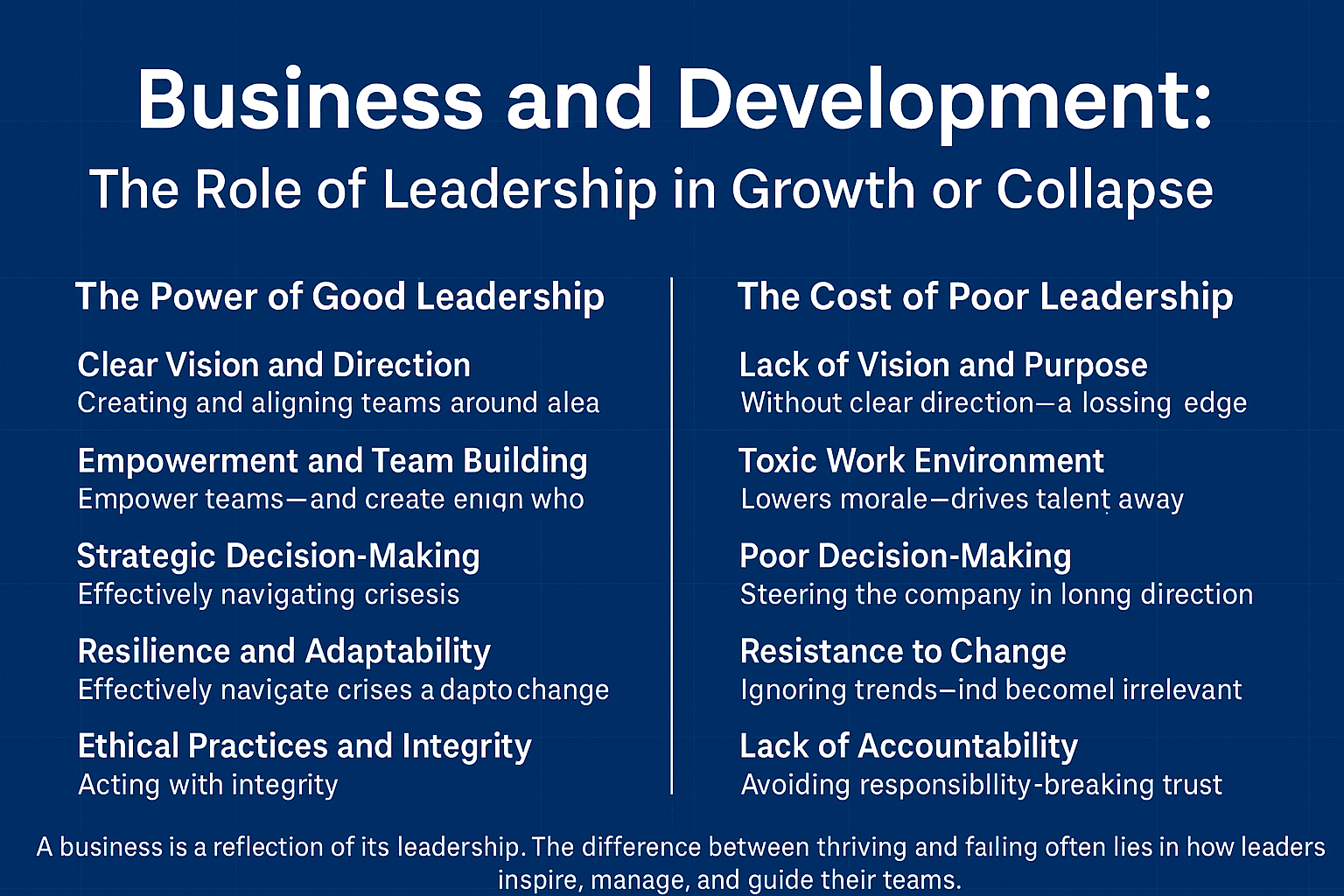In today’s fast-paced global market, the success of a business is rarely the result of luck. Instead, it is shaped by strategy, vision, and — most importantly — leadership. Whether a business scales new heights or crumbles under pressure often depends on the effectiveness of its leaders. Leadership is the engine of innovation, culture, and direction. Without strong leadership, even the most promising companies can lose their way.
The Power of Good Leadership
Effective leadership is the backbone of every thriving business. Here’s how:
1. Clear Vision and Direction
Good leaders create a clear vision for the future and align their teams around shared goals. They ensure everyone knows where the company is headed and why it matters. This vision drives motivation, loyalty, and productivity.
2. Empowerment and Team Building
Strong leaders don’t micromanage — they empower. They build teams based on trust, encouraging innovation and problem-solving. Great leaders recognize talent, nurture it, and create environments where people feel valued and inspired.
3. Strategic Decision-Making
Informed, thoughtful decisions can turn risks into opportunities. Good leaders analyze data, listen to diverse viewpoints, and are not afraid to make bold moves. Their decisions are guided by long-term thinking, not just short-term gains.
4. Resilience and Adaptability
Markets shift. Crises hit. What sets great leaders apart is their ability to adapt. Whether it’s changing customer trends or global disruptions, effective leaders pivot quickly, maintain morale, and lead with calm confidence.
5. Ethical Practices and Integrity
Trust is everything in business. Leaders who act with integrity, uphold transparency, and stay accountable build lasting relationships with clients, partners, and employees.

The Cost of Poor Leadership
Just as good leadership fuels growth, poor leadership can accelerate a business’s downfall. Here’s how:
1. Lack of Vision and Purpose
Without clear direction, teams drift. Unclear goals and inconsistent priorities lead to confusion and wasted effort. Eventually, the business loses its edge.
2. Toxic Work Environment
Bad leaders often create a culture of fear or favoritism. Talented employees leave, morale plummets, and productivity suffers. A toxic workplace becomes a major barrier to growth.
3. Poor Decision-Making
Leaders who rely on ego instead of data or refuse to listen to advice can steer the company in the wrong direction. Bad investments, failure to innovate, or ignoring market needs can all be fatal.
4. Resistance to Change
Inflexible leaders who fear change or ignore trends get left behind. Competitors adapt faster, customers move on, and the company becomes irrelevant.
5. Lack of Accountability
When leaders avoid responsibility or blame others, it breaks trust. Stakeholders lose faith. Internal disarray and external reputational damage are often not far behind.